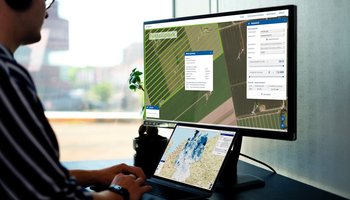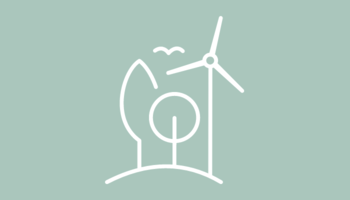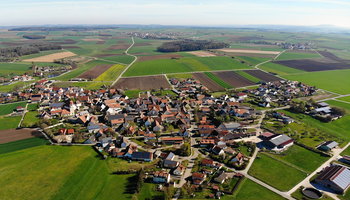A significant increase in the repowering of wind turbines is expected in the near future, as the period of guaranteed feed-in renumeration for many existing wind turbines will expire. From a nature conservation perspective, the repowering process offers the opportunity to steer the construction of wind turbines in such a way that existing conflicts are reduced and, at the same time, the replacement or expansion of capacities take place as nature-friendly as possible. However, there are still no recognised conventions for the nature conservation and legal assessment for the repowering of wind turbines, nor for the planning and methodological implementation of the numerous requirements. Beginning with an evaluation of the status quo of planning and permit practice throughout Germany, a science-based guideline for best practice in repowering from a nature conservation perspective is to be developed.
Repowering will contribute significantly to the increase in installed capacity. Due to approval periods of 20 years and current subsidy rules, the guaranteed remuneration of large numbers of wind turbines will already expire in the coming 5 years. In addition to the continued operation of old wind turbines, new wind turbines are eligible for renewed remuneration under the current Renewable Energy Sources Act (EEG); however, approx. 40 % of all existing wind turbines cannot be replaced resp. repowered at their current location. In the federal states, different regulations apply to the repowering permits and different approaches to streamline the processes are being discussed. From a nature conservation point of view, repowering offers the opportunity to re-examine the siting of wind turbines, not only based on the current state of research, but also to incorporate newly gained knowledge at the site/in the federal state into the new investigations and assessments. As a result, a nature friendly repowering resp. expansion can be achieved which minimizes (pre-)existing conflicts. This also includes the systematic dismantling of singled-out wind turbines which trigger conflicts under the species protection laws or show a particular impact on the landscape.
Therefore, from a nature conservation perspective, it is of interest to identify the need for action at an early stage, to re-research and re-evaluate the positive and negative impacts of the repowering of wind turbines on nature and the landscape under current aspects, and to incorporate them into future political decisions.
The project examines, via a sample several repowering projects in different regions of German, the aspects of planning levels (which are often weighted differently in the federal states), the licensing practice, the handling of site and species protection as well as mitigation and avoidance measures in general. Requirements and recommendations for the planning and approval practice of repowering projects are to be developed and possible need for action and recommendations for the different levels are to be derived.
The project sets out with the compilation of basic data on repowering in Germany (state of wind turbine deployment, nature conservation and legal regulations). At the planning level, the aspects of permit preservation and site selection for repowering purposes will be analysed; in addition, licensing practice will be considered, e. g. the handling of conservation areas and species protection aspects, compensation obligations, the offsetting of compensation already carried out, as well as the execution and efficiency of nature conservation requirements and measures.
In a first round of regional workshops, the approval and planning practice in the respective region is surveyed and evaluated from a nature conservation perspective and best practice examples are identified. Based on this, a nature conservation-related evaluation scheme will be developed, in which criteria for species, biotope and site protection as well as landscape will be taken into account. The evaluation scheme will be presented and discussed in a second round of workshops.
As a result, case-specific requirements for the assessment steps of nature conservation in planning and approval are to be developed, as well as corresponding recommendations. It will be identified, which incentives can be set for repowering from a nature conservation perspective and discussed, how those incentives and other nature friendly aspects can be applied, for example in the tendering procedure.
Recommendations for the implementation of the assessment system will also be derived, and the extent to which the country guidelines need to be adapted, as well as the applicability of the recommendations in example regions, will be discussed and any further need for action identified.
BioConsult SH GmbH & Co. KG
Schobüller Straße 36, 25813 Husum
Jan Blew
Tel: +49 4841 77 937-12
j.blew(at)bioconsult-sh.de
ANUVA Stadt- und Umweltplanung GmbH
Nordostpark 89, 90411 Nürnberg
Klaus Albrecht
Tel: +49 911 46 26 27–88
klaus.albrecht(at)anuva.de
Bosch & Partner GmbH
Kirchhofstr. 2c, 44623 Herne
Dr. Katrin Wulfert
Tel: +49 2323 94 62 9-24
k.wulfert(at)boschpartner.de
tettau Partnerschaft PartG mbH
Lietzenburger Str. 51, D-10789 Berlin
Dr Michael Rolshoven
Tel:+49 30 23 59 300-0
rolshoven(at)tettaupartners.de
Federal Agency for Nature Conservation (BfN)
FG II 4.3 Nature conservation and renewable energies
Alte Messe 6, D-04013 Leipzig
Katharina Schilling, Ulrike Bosch
15.02.2023
Weiter

03.02.2022
Weiter

29.10.2021
Weiter
